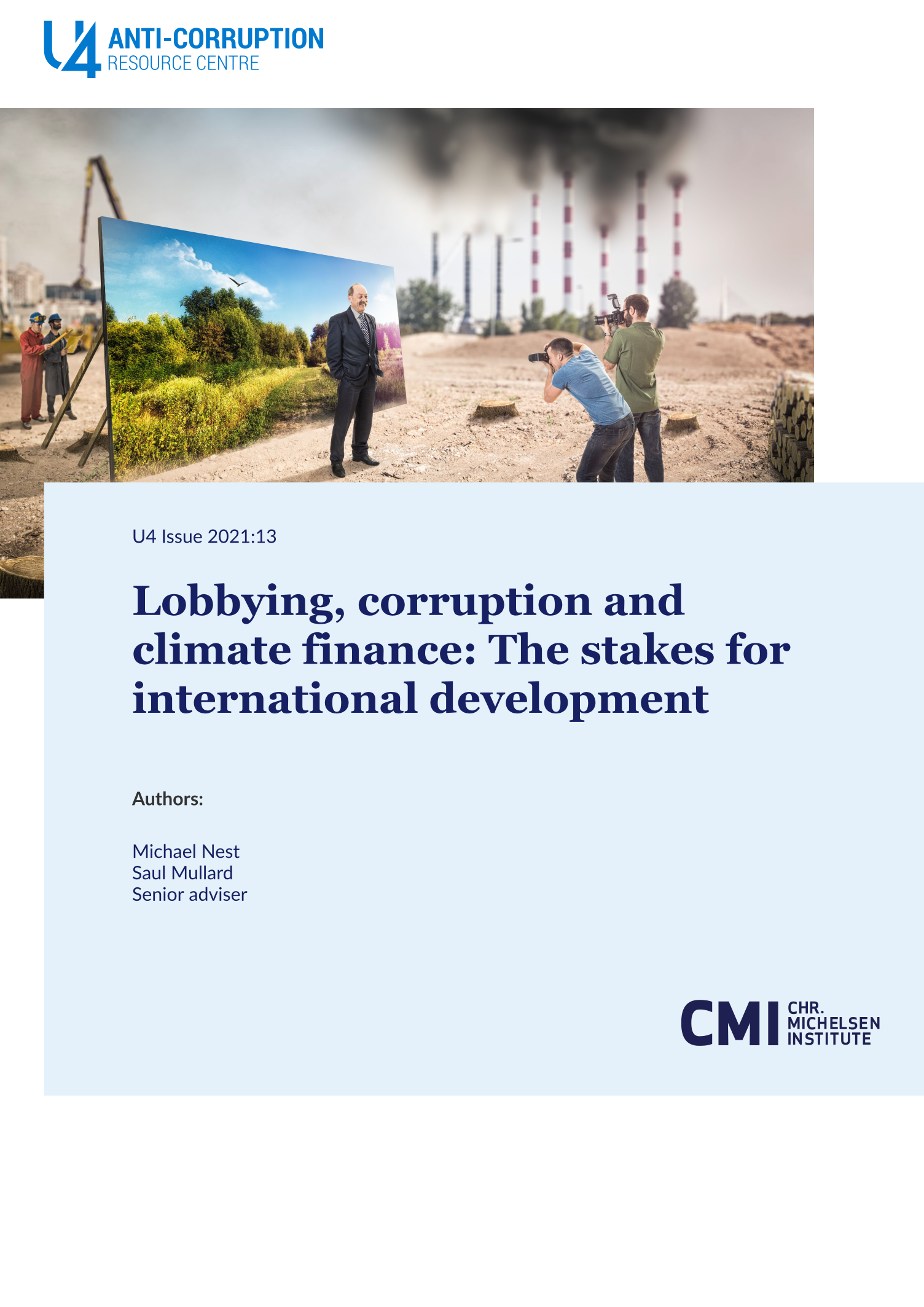Main points
- Lobbying is important for democracy, for facilitating accountability and creating a way for interest groups to contribute to policies and laws. It is a key part of international development, where inclusive policymaking is a fundamental goal. Yet the sector can be exclusive, with special access afforded to former politicians and paid lobbyists.
- Corruption can prevent participation of a wider group of stakeholders, which can erode public confidence in policymakers and the decision-making process.
- As the policy challenge of the century, climate change has created important lobbying opportunities for civil society organisations (CSOs). However, these groups can be outnumbered and out-resourced by larger more powerful players, such as energy corporations
- Climate action has also become big business – for instance, climate-related development finance (CRDF) to international development programmes totalled US$79.6 billion in 2019. And most CRDF is channelled to procurement and construction, areas notorious for corruption.
- As climate action is often most urgently needed in countries that are corrupt, there will be challenges advocating for inclusivity in some countries that receive CRDF that also rank high for corruption, such as Bangladesh, Uzbekistan, Ukraine and Egypt.
- Anti-corruption laws and lobbying regulations on their own are insufficient to promote inclusion or prevent exclusion, to deter unethical or 'corrupt' lobbying or prosecute breaches of lobbying rules. Other tools are needed to level the playing field.
- Some existing tools can help to achieve inclusive lobbying. These include the Sustainable Development Goals (SDGs) – specifically SDG 16 and SDG 17 – standards, and legal and administrative tools used in procurement (for example, those developed by the OECD, multilateral banks, CSOs, UNCAC and U4).
- Stakeholder mapping, community meetings and shared platforms can give equal access to stakeholders, and there are measures around procurement transparency that could be adapted to prevent exclusion. Donors and recipients can also educate programme staff about the importance of inclusive practices, and how to prepare for the risks involved with lobbying.



